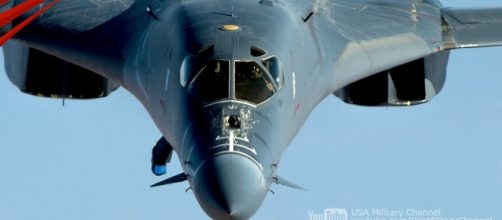North Korea warned on Sunday that the world just moved closer to the tipping point of a nuclear war. It blamed the United States and South Korea which held a live-fire drill on Saturday in the area.
Pentagon deployed two B-1B Lancer strategic bombers as a response to the July 4 launch by Pyongyang of an intercontinental ballistic missile capable of hitting Alaska. The drill demonstrated the capability of U.S. bombers to destroy enemy missile batteries and the ability of South Korean aircraft to destroy with precision underground command posts.
World’s biggest tinderbox
In an editorial published by the Rodong, a North Korean state-run newspaper, titled “Don’t play with fire on a powder keg,” it said the dangerous military provocation caused by the U.S. made the Korean peninsula the “world’s biggest tinderbox.” The bombers flew so close to the demilitarized zone between South and North Korea and dropped 900-kilogram bombs.
The newspaper accused the U.S. of being warmongers that attempted to light the fuse of a nuclear war on the peninsula. The editorial further pointed out that a minor wrong judgment or mistake could lead to the start of a nuclear war that would cause another world war.
Pyongyang’s nuclear and missile capabilities
In an editorial, The New York Times pointed out that the time has come for the U.S.
to accept that North Korea has real nuclear and missile capabilities. It is now time for Washington to stop saying it will not tolerate the rogue programs of Pyongyang because, beyond rhetoric, the U.S. has not shown the ability to slow down the program or remove nuclear capabilities.
The talks and sanctions, the editorial noted, failed to change the strategic calculus of North Korea. Given the present situation, ex-government officials and analysts say the best that the U.S. could hope for is to freeze North Korea’s nuclear program in place. Because the window for denuclearization has been shuttered a long time now, the threat of a nuclear war can be managed. It can be done only by accepting the present situation as a hard fact of life, Jeffrey Lewis, the director of the East Asia Non-Proliferation Program at the Middlebury Institute of International Studies, wrote.
The editorial added that while North Korea may quickly lose any war, “it could impose unacceptable costs on South Korea, Japan and potentially the United States.” Pyongyang’s medium-range missiles are capable of holding Japan and South Korea at risk because of thousands of American troops in the two Asian countries.


